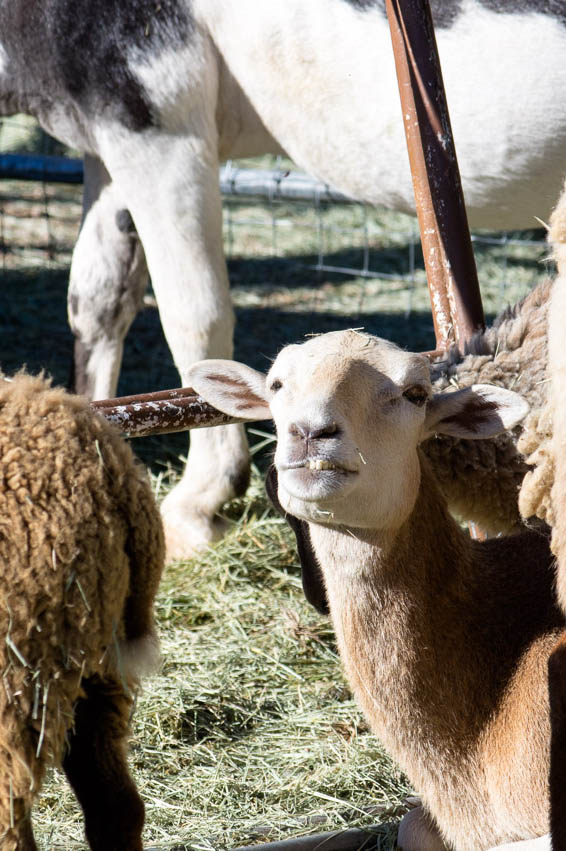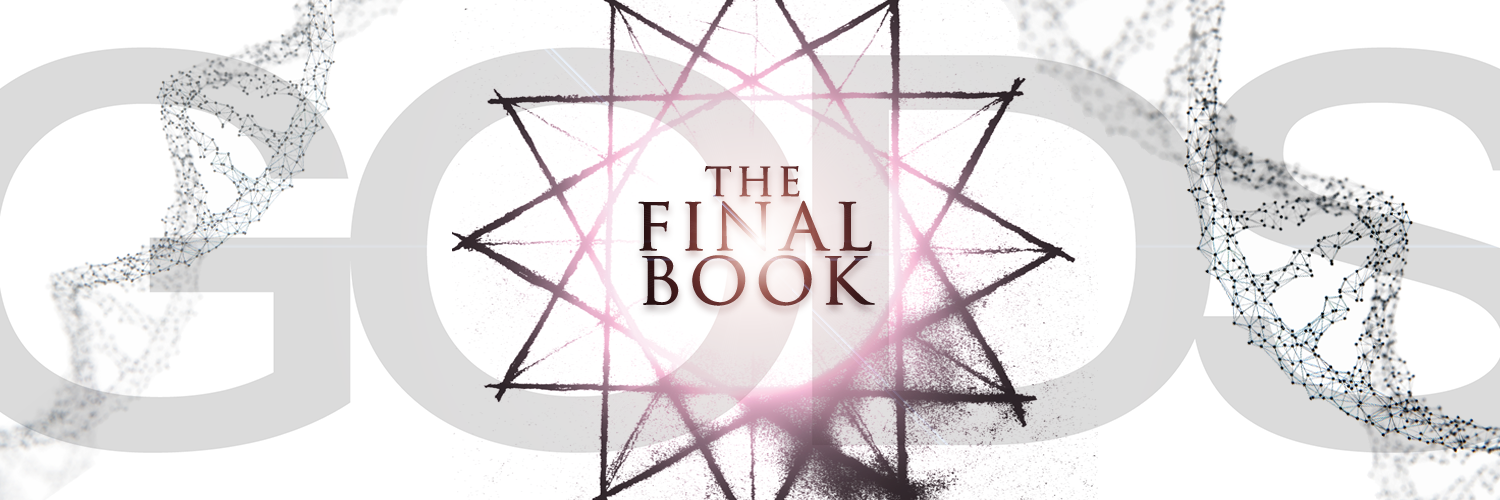Legally Married With Children: A Conversation

See no evil. Hear no evil. Speak no evil.
While there is absolutely no moral equivalency being drawn between good and evil—right and wrong—this exposé on same-sex marriage and modern families is completely about turning a blind eye. How I looked the other way—simply because everyone else did. We are afraid to ask the simplest of questions just because of the way it makes us feel. Ignorant. Confused. Fearful of the future. A whole host of complex questions that require considerable thought, vulnerability, and stirs deep emotions.
Meet Ginger; a longtime family friend and who would be the closest thing I have to a sister. My dad and her dad have been friends since the mid 1970s. They met while at work; my dad being a construction manager and her dad, David, owning a painting company. The two played competitive softball with each other for many years. As the stories go, it was a tight-knit group of friends and the ballgames were much more than obsession—it was their life. My mom had a significant role in Ginger’s young life, acting as an close-to-the-family babysitter for her and her brother for several years. Ginger’s mom and dad were always very much involved in her life, but appreciated the extra help while working full-time jobs and managing softball teams. Eventually I was born and my mom looked after all three of us. Though I was only a toddler, Ginger was my favorite and I followed her around like a duckling.
Ginger, 40 years old now, has a young family of her own. She has an amazing little girl, Rian, and the best wife in the world, Kaydee—who is pregnant with their second child due this May. Ginger and Kaydee are legally married and both children were conceived though alternative insemination by the same anonymous sperm donor—both children sharing the same biological father.
On March 3, 2017, I got Ginger on the telephone for a long overdue conversation. However, the odd significance of the call is that it was the first time that Ginger and I have ever directly spoken about her sexual orientation, the details of her pregnancy, her family dynamics, and the hopes and dreams she has for her children… Bear in mind, the entire absurdity of this is that I’ve slept on an inflatable mattress at her house for weeks at a time. I’ve shared countless meals with her. I’ve met, hung out, and have gotten drunk with many of her lesbian friends. I gradually witnessed her and Kaydee fall in love—and I was there, in the hospital, the day Rian was born… Though her and I have never talked about any of it. Weird, right? Totally.
Why is that? Well, I know how to read a room.
In a halfhearted attempt to become an adult myself, I moved to Phoenix, AZ pursuing a career in Major League Baseball. Ginger’s brother, Kevin, worked in the industry which lead to getting my foot in the door in the Commissioner’s Office and working several years with the Arizona Fall League. During this time, I lived with her parents, who literally lived directly across the street from Kevin and his family. Naturally, I became very close with David and Kevin, and while Ginger was almost a daily part of our lives—no one ever spoke of her sexuality. It was taboo. Everyone knew—she’d bring Kaydee around for family dinners and bbq’s—but no one talked about it. Her family didn’t talk about it with me, she didn’t talk about it with me—so, I didn’t talk about it either.
Ginger: “But I know you said, ‘I know your dad and your brother really well.’ Well… yeah… they don’t really want to talk about it, so I don’t talk about it—you know?”
Sean: “Well, right. That was the vibe I got while I was living there, so that’s why I never talked about it, because no one else ever did. It wasn’t because I was weird about it, you know what I mean?”
Ginger: “Yeah, well yeah.”
Sean: “I have so many friends that are gay or lesbian or… just whatever. I’ve lived with a whole bunch in the past when I did my music stuff, so to me it was just—”
Ginger: “Like, no big deal!”
Sean: “And it’s not weird to even talk about it, which, when I was living with your mom and dad, it was one of those things that was, like, very quiet—”
Ginger: “No. It wasn’t said.”
Sean: “I don’t know, I always kind of got the feeling it was more Stephanie (brother’s wife) that she had issues, or maybe even your mom because she was so religious.”
Ginger: “Right, well, yes. I can tell you that the day I told my mom, she told me, ‘I love you, I always will, but I don’t ever want to see it.’”
Sean: “Okay?”
Ginger: “Like, ‘if you ever have a girlfriend around, I don’t want to see it.’ In my mind I’m thinking, ‘what do you think I’m going to do?’ Well yeah, you’re not going to see it—you don’t see Kevin and his wife!”
My interview with Ginger lasted almost an hour and half—which was amazing. Not only was it insightful to learn the complexities of her story and the struggles she’s faced, but it was also illuminating to hear her perspective on a family I thought I knew so well—one of which I was basically a part of. For us to both talk about our parents and why family issues, sexuality, religion, and meaningful topics were always such quiet topics was, if nothing else ironically humorous, but also surprisingly similar.
Before the interview, I mentioned in passing to my mom that I was going to reach out to Ginger and ask her about all of this stuff. In a knee-jerk reaction, my mom was immediately against the idea. She didn’t “forbid” me from having the conversation, but I think she was instinctually concerned over Ginger’s wellbeing. She didn’t want Ginger to be put in an uncomfortable position—to feel obligated to answer deeply personal questions that I had no business asking. She especially didn’t want Ginger to be judged by all of the people that may read this essay. She wanted to protect her—and silence was her only weapon.
To my mom, and the vast majority of her generation, being a lesbian is still very much considered to be a sensitive subject. “In the 1950’s, unjustified police raids on bars serving gay and lesbian patrons were common, and newspapers frequently published photographs designed to shame the people who were arrested in these police sweeps,” (Green 2010:201). My mom remembers the 80’s vividly—the equal rights marches, the AIDS epidemic—she still cries when she thinks about what happened to Matthew Sheppard. To associate Ginger with this world, to briefly consider the things she’s gone through and the way society has treated her—a girl she helped look after—are thoughts she has no stomach for exploring. So she ignores it, and encouraged me to do the same.

Sean: “It’s funny, talking about this stuff, my dad was very narrow minded about the whole thing. He was just extremely ignorant. And, you know, he would have been very much against it—against gay marriage—but then I said, ‘Hey Dad, what do you think of Ginger? You know her, you helped raise her—’”
Ginger: “EXACTLY!”
Sean: “‘She’s a great person—she doesn’t deserve these things?’ Then when you kind of put in terms that he could relate, he was like, ‘Awe, shit—’”
Ginger: “Yeah, you’re right.”
Sean: “‘She deserves everything I’ve got.’”
Ginger: “She deserves to be just as happy as I am.”
Sean: “Right, exactly. If it weren’t for you, he never would have become open to the idea at all.”
Ginger: “Ha—that’s funny. Well, my dad had a hard time with it—yeah, he had a really hard time with it when he first found out… He didn’t speak to me for three days. He couldn’t even look at me. Yeah… Yeah. It was terrible—because you know how close we are. He was just like, ‘I can’t.’ He wouldn’t. He couldn’t even speak to me. Couldn’t look at me. So finally, literally, my mom went off on him—‘this is your daughter, you LOVE HER NO MATTER WHAT—you better get your act together!’ (laughter) I mean, she went off.”
Sean: “Well, that’s good—she should.”
Ginger: “Ever since then—he’s been accepting of it, obviously. He loves Kaydee. He loves Rian.”
Sean: “Well yeah, that’s the thing—him and I would talk about it a little bit. And whenever he did—”
Ginger: “Yeah?”
Sean: “—he would say the same thing. At first it was just something that was really, really difficult—it wasn’t so much that he liked you any less, but he was so afraid for your future. It’s just going to make her life so much harder. How is everything going to work? That’s what he expressed to me—that was more of his concern—not that he didn’t like you… And beyond that, he just didn’t understand it—he couldn’t relate to it.”
Ginger: “He gets it now. But that’s the thing—the people that say that, ‘I’m worried about your future. Why would you do this?’ Well, exactly. Why would I choose this lifestyle? If I know my future is going be difficult—and not like everyone else’s—why would I say, ‘you know what, I’m gonna go this route’? Why would I do that unless it wasn’t in me? You know, part of who I am?”
Since Ginger was a little girl, she always knew who she was—a ballplayer. Growing up, Ginger was a gifted athlete. Extremely tiny, coming in not much over four feet tall, she was one of the best competitive fast-pitch softball players Colorado—later the nation—had ever seen. She was a remarkable shortstop; one of the quickest and most intelligent I’ve seen at the position, and I have lived and worked in professional baseball from every level. David, her father, coached her the entire way. His dedication to her and the sport earned him a place in the ASA Hall of Fame, him and Ginger winning many national championships, and Ginger earning a full scholarship to Mississippi University for Women.
Ginger was the pride and joy of the family in her youth, her older brother humbly joining ranks in full support as everyone’s lives were dedicated to her athletics. She was extremely well liked in school, always beating the boys in gym class and never feeling pressured to act, dress, or appear a certain way—only to be herself. She recounts a softball meeting early in childhood, 5th or 6th grade, where all the girls were brought into a room to have “the talk.” She recalls something about sex-ed, maybe girls getting periods, but what stuck with her is that one of the coaches made a statement; “that ninety percent of all girls who play softball end up being gay.” She was floored and scoffed—she looked around the room at all the girls and vowed she’d be one of the ten percent to remain straight.
That was about the extent of thought she had given to boys or relationships, maybe casually going bowling or to the movies on group dates in high school, but never taking any of seriously. She was devoted to softball. Relationships, with boys or girls, were a distraction from that—and she was completely focused on winning.
Ginger: “I guess I didn’t realize I was gay until I was in college and I met my first girlfriend. Then I was like, ‘wow, this feels right.’ You know, obviously these feelings I’m having for a girl is weird—”
Sean: “Right. So when that happened was it like a paradox shift for you?”
Ginger: “Yeah, yes—it was. It was a jump back, like woah, woah! Wait. What’s happening?! But… I just went with it… you know?”
Sean: “Well, it felt right.”
Ginger: “Yeah—exactly. I went with it instead of denying it—then I was, like, oh, I - am - gay! I just embraced it.”
Sean: “I didn’t know if it was something you had figured out in jr. high and then you were living trying not to tell people for so long?”
Ginger: “Nope (laughter). I embraced it as soon as I realized.”
While Ginger had little internal conflict accepting her sexual orientation, where she lived in Mississippi wasn’t as openminded. As recent as 2009, almost two decades after embracing her identity, Mississippi police were captured on video brutally beating a transgendered woman while in custody (Stanley 2014). Numerous cases throughout the 1990s poured in across America about antigay violence and persecution. Beatings, murders, and outright hatred saturated the media. “It was impossible for a lesbian or gay person to grow up in this society without internalizing some negative attitudes and fears about homosexual feelings and the dangers of discrimination,” (Green 2010:205).
Ginger: “The thing is, we had to deny it. Living in Mississippi—in the South—you could get shot over it, you know what I mean? We would go to bars, and leaving I was scared I was going to get shot. Like, literally, I was—because it was so not acceptable.
“And, I didn’t tell my parents—I was with Heidi for 5 years and I didn’t tell my parents until after me and Heidi broke up. She never told her parents. And then I was with Aimee for 13 years and she never told her parents that we were together. She’d just tell them that we’re good friends or just roommates. She never ever told them…
“So yeah, in the South, you have to deny it… I had friends that their parents did disown them when the found out. How do you do that? How does someone do that?”
Sean: “I have friends that their parents have done that to them as well. It’s, like, you’ve got to be kidding me…”
Ginger: “How do you do that?! Yeah… you’ve got to be kidding me. Crazy.”
Green’s research highlights many of the challenges and attitudes parents of homosexual children have. “Instead of being on the same side as their child… parents’ own antigay attitudes and behavior may be the greatest external danger of all,” (2010:209). He goes on to state that large numbers of lesbian and gay adults, especially those from conservative religious families with traditional values, still remain closeted from their parents. “Although most parents do not completely reject their lesbian and gay children after the disclosure, the level of acceptance that offspring receives is highly variable and usually qualified,” (Green 2010:209).
This distance wedged by remaining closeted or the tepid qualifying of the relationship often leads to “same-sex couples turning to their lesbian an gay friends for greater levels of metal support and identification. Ideally, these friendships are woven together into a so-called “family of choice”—an interconnected system of emotional and instrumental support over time,” (Green 2010:209).
Ginger and Kaydee met at mutual friend’s party—basically a gathering of several of these tribes of “family of choice” where everyone was considered to be safe. Ginger had just gotten out of a long term relationship, and Kaydee was mourning the loss of her father. Neither had any desire to get involved in a new relationship, which Ginger attributes to their success. Their initial introduction was natural, fluid—they were just two people talking, finding each other interesting without notions or expectations of anything more. They started as friends, which organically lead to something more.
Ginger: “So I guess you could say that we started dating (laughter) about a month after we met.”
Sean: “Was that a conversation that you guys had? You were, like, ‘hey, I really like you, and…?’”
Ginger: “Yeah, yeah—it was a conversation that we had. I was like, ‘okay, listen—I really like you… will you be my girlfriend?’ (laughter) She was, like, ‘yeah—sure.’ (laughter)”
Sean: “That’s awesome. (laughter)”
Ginger: “Kinda corny—it’s kinda corny now that I say it!”
Sean: “Well, no! That’s good that you actually communicated—so many relationships don’t. It’s just this thing that’s ambiguous for so long—‘are we or aren’t we? What does it mean?’”
Ginger: “(laughter) What are we doing…? Yeah, we were not your typical lesbian relationship because we actually didn’t move in together right away. Which, normally, you know, there’s that joke that says, ‘what does a lesbian bring on a second date? A U-Haul (laughter). We actually dated for a year, an hour apart, before we moved in together…”

Ginger’s tone became much more soft and sensitive. There was a tenderness and vulnerability I had never noticed in her before.
Ginger: “We just wanted to make sure, you know? That it was right? And… we both wanted to have kids. I was getting old, so, umm, we really needed to figure out what we wanted to do. So we moved in, and a little while after that we started trying (to have a baby).”
Sean: “How did you know? Like, I’ve been in relationships, I would say good relationships. There’s nothing wrong with the girls—they’re smart, they’re kind, they’re well educated, they’re gonna have a great life—how do you know that this is the one that I want to take this gamble on?”
Ginger: “I think we knew—or I knew—because I thought about her all the time; I wanted to be with her. I just really enjoyed her company.”
Sean: “Gotcha.”
Ginger: “I really loved being around her. I didn’t get over it. Like, when we were together, I was never like, ‘ugh, I can’t wait for you to go home…’ (laughter) You know what I mean? You know how you get that feeling that ‘I love being around you, but okay, it’s time to go—I need my alone time’ (laughter). It never really got to that. It was always like, ‘I just want you to be here…’ If something happened in my life that was good, I wanted to tell her about it it. She’s the first person who pops in my head, ‘oh I can’t wait to tell her about this.’”
Sean: “That’s awesome.”
Ginger: “Kinda like I knew—okay—this is the person I want to be with. This is who I want to share my life with. We had Rian before we knew it (gay marriage) was going to be legal.”
In 1790, British surgeon John Hunter was the first to successfully carry out artificial, or, alternative insemination on a human (Bullough 2004). By 1941, only ten thousand women had ever become pregnant by alternative insemination, largely due to very little being scientifically understood about the menstrual cycle. Research caught up and by 1955, that number had jumped to fifty thousand (Bullough 2004).
However, society had difficulty understanding and accepting the new procedure and legal opinion lagged way behind the reality of what was happening. Women who became pregnant through alternative insemination by sperm not furnished by their husband were often charged with adultery. Sperm banks would only serve married couples, specifically denying lesbians access (Bullough 2004).
While society has become more accepting of the procedure for all women, regardless of sexual orientation or marriage status, laws can still be unclear and undefined concerning the father’s role and responsibility. For Ginger and Kaydee, they felt it was paramount to obtain their sperm through a registered sperm bank. They deliberately ensured that they obtained every legal right to protect their future children and that the biological father was a donor only and had relinquished all of his parental rights.
Ginger: “So, we just knew that we were going to have a kid. Since I was older, I was like, ‘you can just have the baby.’ She was like, ‘well listen, I know you feel like you’re older, but I feel like you should at least try… I just don’t want you later on in life to regret that you never at least tried.’ So, I’m like,—you’re right. Okay—I’ll at least try.
“What we did was, there’s a sperm bank—it’s called California Cryo. What you do, is, you log onto this website. You get to choose pretty much everything. They have different stipulations—what do you want? Do you want a male with blue eyes or green eyes? Or hazel eyes? So, you choose what you want—dark hair, blonde hair, whatever—athletic, musical. You literally choose what you want. And then your options come up—these are the men we have in our bank.”
Sean: “So you kind of filter it through like a checklist? It shows the candidates that match…”
Ginger: “Yep. Exactly. So, we choose a guy that was blue eyed, dark hair, athletic—like, we know everything about this guy—his whole background, everything you could possibly want. We bought five vials of sperm, which is about two hundred million sperm in each vial—you’d think that’d do the trick, right?”
Sean: “Maybe? (laughter).”
Ginger: “So then we go to the doctor—I had to take medicines, to make my eggs bigger. Kaydee was injecting me with all these hormones. I guess I was a wreck. I didn’t think I was, but they told me later on that I was—I was a wreck, (laughter). I was like, ‘no, it didn’t affect me at all’ and they’re like, ‘yeah… think what you want!’ (laughter). So, I tried three times—three times in a row and it didn’t work. Finally, I told Kaydee I cannot do this another month. I have to wait. I am… it’s killing me. So we waited, and then we found out that my mom was sick… And that was when I was, like, you know what? I want to try again. Because, I just want my mom to know that I am pregnant… I just wanted her to know. So I tried again and it worked. It took four tries to have her (Rian).”
Ginger’s mom received the good news while in the hospital battling cancer. She emphatically predicted that the new baby would be a little girl, and she was right. Emily passed away a couple of weeks later.
“When lesbian and gay people who now are over sixty-five first came out, it was inconceivable that marriage or parenting would be available to them… The younger generation, by contrast, seems to have taken a giant leap forward in terms of rising expectations for equality, striving for same-sex marriage rights, and for the same opportunities to adopt or conceive children,” (Green 2010:211). Being a lesbian doesn’t mean you can’t become a fulfilled woman, or experience the vast complexities that womanhood offers; namely giving birth to your own biological child. Ginger’s mother was able to rest peacefully knowing that her daughter wouldn’t miss out on life simply because of her disposition.
Sean: “I see this being a huge issue within society, this (alternative insemination) being restrictive to people of means, people who have income—it’s gotta be an expensive process. There is no bar of entry for a heterosexual couple to have kids, they just, kind of, ‘do it’ and it happens (laughter).”
Ginger: “(laughter) Yes. Right? It doesn’t cost anything.”
Sean: “Well, is that more discrimination towards gay and lesbian people? Is that not something that could ever be solved? A poor lesbian couple gets together and they want to have children, how would that happen, or would it not?”
Ginger: “I don’t really think it’s discrimination because obviously when two women get together, they know they can’t make a baby without a man. So, there’s a few options they can have—I know friends that, we’ve had guy friends that have said, ‘hey, I’ll give you my sperm if you want to have a baby…’ That’s free.”
Sean: “Right. But then there’s legal problems because now, is that guy the father, or does he sign all of those right away? Yes, there’s obviously pragmatic ways you can go about making it happen, but legally how does that effect the family?”
Bullough, along with numerous heartbreaking cases that have gone through the legal system, have raised the warning flag to same-sex couples considering taking parenting matters, both in the biological and child rearing sense, into their own hands. “When the sperm donor is known—as in cases where individuals such as a gay man and a lesbian (or a gay male couple and a lesbian couple [or straight male and a lesbian])—decide to co-parent a child, it is very important that all parties be clear as to the legal obligations and consequences of the co-parenting arrangement. Since alternative families are not acknowledged in most jurisdictions, co-parenting may carry with it considerable legal risks,” (2004).

Ginger: “Legally, if we would have done it that way, we would have had him sign something saying he has no rights to the child. He could be in the child’s life, 100% you can be there—but you have no rights, you have no say over how we raise them, what school we want them to go to—no, you don’t get them on Christmas. That’s how we would have done it.”
Sean: “So, just like an adoption, basically, but on the man’s side.”
Ginger: “Yeah, pretty much.”
Sean: “But the bad thing about that is that it’s not upheld, because the court doesn’t see those documents being valid. Even though you’ve got this signed thing you’ve agreed upon—just because you’ve agreed upon them—there’s no laws constituting that it actually has to hold to that.”
Ginger: “Exactly. That’s true.”
Sean: “It’s this really complex thing in society that isn’t solved yet.”
Ginger: “Yeah, it is.”
Sean: “I didn’t know if this has ever come up with your friends? If you had any thoughts as far as how to solve this problem—obviously, changing laws solve this problem.”
Ginger: “Honestly, that would have to be the only way. ‘Cause if you have a fight with this person—‘you know what, I want the rights to my baby’—he would get them. He would 100% get them and that’s scary.”
Sean: “Well that’s not right. If you guys have a family and you’re married, and the kid is, like, 7 years old and all they’ve known is their moms, and all of sudden…”
Ginger: “This person comes in and is like, ‘I’m your dad, I’m taking you away.’ Yeah, it’s scary. For sure. And again, if we would have gone that route and something happened to me, then that person would have the rights to the baby, and not Kaydee… So yeah, laws definitely have to change.
“Now that Trump is in—I’m not really sure. We have at least 4 years until we can start working on this again (laughter).”
Sean: “Right, because of Trump, are you guys accelerating the adoption (of Rian)?”
Ginger: “Yeah, we are. We are. We are trying to get all of our ducks in a row, because we just don’t know. We just don’t know what’s going to happen… They passed the law to legalize marriage—gay marriage. So we’re like, we need to hurry up and get married—while this law is in place, before they take it away.”
Sean: “Right. Repeal it.”
In Green’s article, “From Outlaws to In-Laws,” he highlights that very situation. “For a little less than five months, California permitted same-sex marriages until a constitutional amendment [Proposition 8] on November 4, 2008, eliminated the right of same-sex couples to marry there. Approximately 18,000 same-sex marriages were performed in California during that time,” (2010:203). Stacey also remarks that many of her subjects in her book Unhitched “had rushed to hold ‘shotgun weddings’ during California’s brief window of opportunity,” (2011:88) only to feel utterly defeated after Proposition 8 made it illegal again. Same-sex couples have had their hopes raised and hearts broken countless times over marriage, leading to justified skepticism on the longevity of Obergefell v. Hodges—the Supreme Court ruling on June 26, 2015 that afforded same-sex couples equal protection under the 14th Amendment of the Constitution—allowing them to marry (Holley 2017).
Ginger: “We’ll be grandfathered in, so that’s why we got married so fast—like, within a month. Rian was already born then, but we thought it would be easier for Kaydee to adopt Rian if we were married.”
Sean: “Okay—yeah, that makes sense. Is marriage the legal structure that you guys need as a couple to ensure the wellbeing of your children? And yes, of course, it is.”
Ginger: “And it is for other reasons too. Like, if I’m sick, and we’re not married, Kaydee’s not family—then they’ll be like, ‘you can’t see her.’ In most situations, we had to get married to have those rights.
“For example, if something did happen to me, and we weren’t married—‘cause we’re still in the process of having Kaydee adopt Rian. We haven’t finalized anything yet, we’re working on that—if something did happen to me and… my dad… said, ‘you know what? I want Rian.’ …He would get her. He would get her. He would at least get her half custody—if not full. And then Kaydee would have to fight for that. She would have to take my dad to court and fight for that.”
Sean: “To me, when I said, ‘what does marriage mean to you? Is it a legal structure, business agreement, spiritual? It is—it’s a legal structure to protect both of you guys more than it is anything else.”
Ginger: “It is. Absolutely. It is. We have to have that title… to have rights.”
In Badgett’s essay, “Will Providing Marriage Rights to Same-Sex Couples Undermine Heterosexual Marriage? Evidence From Scandinavia,” she describes what marriage means and the rights it affords—the title meaning significantly more here in the United States. “Our country relies heavily on the labor market and families to provide income and support for individuals. Marriage is the only route to survivor coverage in pensions and Social Security, and many people have access to health care only through their spouse’s employment,” (2010:96).
Sean: “What were conversations that you guys had—I can assume you’re angry, or whatever, for not being able to get married—but then when you found out that you could?”
Ginger: “Well, before it was even legalized, Kaydee had proposed to me.”
Sean: “Did you guys ever consider going to another state that did allow it? And then would that be upheld in your own state?”
Ginger: “No, we never did—we never considered going to another state to get married where it was legal, just for the fact that it wasn’t legal in our state. It would have been null and void in Arizona. It wouldn’t have mattered. So we were both, like, ‘we want to get married to each other, but there’s no point in getting married until it is legal.’ So, she proposed to me, like, six months before we got married—thinking we were probably just going to be engaged for years. We weren’t actually gonna get married until we knew for a fact that it was legal. We had no idea they were going to legalize it so soon.”
Sean: “That’s awesome (laughter). That’s kind of funny how that worked out. I’m just thinking, like, if I were to have proposed to a girl—and we had this thing, where, ‘yeah, I’m gonna propose to ya, but it’s not going to be until 4 or 5 years before this happens…’ and then six months later you’re married. You’re like, what the hell?! (laughter)”
Ginger: “(laughter) You’re like, ‘oh shit! I guess we gotta get married! (laughter) I guess this is really happening!’ Which is funny, because in way, I kind of did feel that way—yeah, we’re just engaged until it’s legal—thinking in my mind that it never will be—because, honestly, I wasn’t sure how my family would react going to my wedding…”
Sean: “Yeah…”
Ginger: “For example, Kevin didn’t bring his kids…”
Sean: “I know…”
Ginger: “It did bother me that the kids weren’t there. It did. Of course, I’ve never said anything to him about that.”
The first countries to adopt marriage-like status for same-sex couples were Denmark in 1989, Norway in 1993, Sweden in 1994, and Iceland in 1996 (Badgett 2010:91). “In 2000, Vermont became the first U.S. state to offer civil unions to same-sex couples. Massachusetts then became the first state to license and recognize same-sex marriages, starting in 2004,” (Holley 2017). However, until the Supreme Court ruling in Obergefell v. Hodges in 2015, same-sex marriages occurring in states where it was legal were never valid in the eyes of the federal government due to the Defense of Marriage Act—a provision that defined marriage as the union of one man and one woman (Holley 2017). In 2013, the Supreme Court ruled in United States v. Windsor that the Defense of Marriage Act was unconstitutional and that the clause was a “deprivation of… equal liberty,” (Holley 2017). These two chief victories resulted in all states being “required to issue marriage licenses to same-sex couples, as well as to recognize marriages performed in other states,” (Holley 2017).
However, the topic is still heated and the law fragile. Many in the LGBTQ community are concerned that the law could be overturned under President Trump’s administration, or limitations being imposed on LGBTQ persons by strengthening religious and traditional values organizations and limiting others that oppose them (Signorile 2017). During confirmation hearings taking place as this essay is being written, conservative Supreme Court Justice nominee Neil Gorsuch said that same-sex marriage was “absolutely settled law.” But Gorsuch “would not speak more on it because there are other legal actions still unfolding that are related to the impact of that ruling,” (Berman 2017).
But everyday life for same-sex couples must, and will, continue. One would never label Ginger as a rebel or an activist. She is an upstanding citizen without a criminal record—however, she made it very clear that the political climate would never dictate the love she shares with Kaydee or stop her from doing everything she can to protect and support Rian. Her life’s decisions aren’t being made around law, society, or fear—but rather, only pursuing happiness the best way she knows how.
Within a single year, Ginger found herself to be a mother of a little girl and as a fully legal wife—two massive milestones that seemed unobtainable by a younger version of herself, and completely unimaginable to lesbian generations before her (Green 2010:211). It was a lot of change—but also exactly what she wanted—and all the things her parents ultimately wanted for her. She was loved. She was experiencing the joy of having children. She had built a home and family of her own.

Fortunately, as society evolved, so did her father, David. All of the things he was worried about, all of the concerns he had for her future—always knowing that Ginger one day wanted to have children and a family—began to fade away. Kaydee proved herself to be instrumental after the heartbreaking loss of his wife, Ginger’s mother. He witnessed the pillar of support Kaydee provided, the way she stepped up and helped the family with countless arrangements, and saw that she was up to the task of sticking by his daughter’s side for the next 40 years—just as his wife had. While the package was different, the love was the same; their little family just as bright and promising as his own. “Heterosexuality and homosexuality are not logical opposites. Counterpoising one against the other inevitably exaggerates their differences and minimizes their commonalities. Heterosexuality and homosexuality are most accurately viewed as variations on a common theme about attractions and the human capacity for enduring love relationships,” (Green 2010:199).
However, Ginger quickly discovered that wanting kids is much different than having kids. Big decisions needed to be made, roles established, and structure created to form a functioning family. Currently, Ginger is doing well in her career and has the ability to provide for her and Kaydee—giving Kaydee the opportunity to stay home and raise Rian. Beyond childcare, Ginger says most household tasks are divided fairly evenly—each helping, and picking up slack where needed. She made it clear that she wants Rian to see them as equals, a team working together.
Green’s research supports this and even offers encouragement as group comparison studies show lesbian couples “have an advantage in escaping traditional gender roles division that make for power imbalances and dissatisfaction in many heterosexual relationships,” (2010:199). Ginger eagerly wants to contribute a motherly role in the development of Rian, never pushing child rearing roles onto Kaydee even though she may do the vast majority of them during the day. Likewise, I never sensed Kaydee feeling inadequate because Ginger provides the majority of the income. If anything, they feel fortunate they have the opportunity to raise their own children—respecting each other and the importance their duties. “These scientists found that same-sex couples were better at resolving disagreements. They approached problems from a position of peer equality,” (Green 2010:200). Whereas researchers have observed a much more significant power struggle within heterosexual relationships, with one partner feeling invalidated by the other, leading to a more opportunities of unhappiness in heterosexual marriages (Green 2010:200).
Sean: “As far as having a male influence—I know Kaydee has brothers, I know you’ve got a brother and your dad—but, a lot of people would argue ‘there needs to be a father in the household.’ Which, obviously isn’t true, because there’s so many families with single mothers and the kids grow up to be just fine. Is that a consideration? Is that something you feel is important?”
Ginger: “Yeah, it is. It’s definitely important to us that there are male figures in her life—there’s no doubt about it. We try to see her uncles, Uncle Cain and Uncle Mitch, all the time. Uncle Mitch has a little boy, Mark, which is going to be 2 in April, and they’re the ones that live in the same neighborhood as us. Well, sometimes when he comes in the house to pick up Marky, she’ll (Rian) go, ‘Daddy!’ because that’s what Mark does. She hasn’t really figured that part of it out yet, but we don’t correct her. She’ll figure it out—what daddy means later on. But, no, we really want that male figure in her life—my dad, Kevin, Mitch and Cain, we want her to have those male figures in her life, for sure—I think it’s really important.”
Since 1977, James Dobson’s Focus on the Family propaganda machine has openly been engaging in antigay advertising, media buys, lobbying, and pushing legislative policy to block same-sex marriages and partnerships. Spending over $145 million annually and reaching an audience of 220 million people daily all over the world (Green 2010:204), Dobson has made a career on false information. In Dobson’s essay, “Two Mommies Is One Too Many,” he wrote:
“With all due respect to [Mary] Cheney and her partner, Heather Poe, the majority of more than 30 years of social-science evidence indicates that children do best on every measure of well-being when raised by their married mother and father…. We should not enter into yet another untested and far-reaching social experiment…”
(Time 2006, Green 2010:204)
However, “there is not a shred of social-science evidence that children raised by heterosexual mothers and fathers do better on any measure of well-being than children raised by lesbian or gay parents,” (Green 2010:205). Judith Stacey piles on even further multiple times in her book Unhitched, “‘fatherless’ children who have lesbian parents fare just as well as children of heterosexual parents,” (2011:86).
This isn’t anything new. In Green’s essay, “From Outlaws to In-Laws,” his research cites strong antigay prejudice and discrimination that same-sex couples are subjected to, and continually cope with (2010:200). I asked Ginger if she had and experience with this first hand.
Sean: “How is the community, society? I mean, if you guys bring Rian to the park or playground, is she treated differently by the other mothers because of you guys? Or do the kids stay away from her because they think she’s different? Anything weird like that happen?”
Ginger: “So far, right now, no. We have not seen any of that. We’ll get weird stares or weird looks when we go to restaurants—just the three of us, as one big happy family.”
Sean: “How do you… is that—I mean—there’s nothing you can do about that, and it sucks, but are you accustomed to it at this point? Or does it hurt you inside? Or do you not allow it to hurt you? Not something you think about?”
Ginger: “No… I’m accustomed to it. If I think they’re looking at me, I’ll look right back and smile real big at them, like, ‘heeey! I see you staring at me!’”
Sean: “You want somethin’? You need somethin’?”
Ginger: “Right—do I know you? (laughter). But no—it doesn’t bother me, just because I think I’m so used to it. I think we all feel that way—that we’re so used to it. Sometimes it’s like, ‘come on, God—really?’”
Sean: “How do you think that will impact Rian as she gets older? When she starts socializing with 6, 7, 8, 9, 10 year olds—when they get to the age when they’re talking—they’re picking on each other at that age. Do you see that being an issue, and if it is an issue, how would you advise her to handle it?”
Ginger: “I think Rian is going to handle it in stride. She’s going to be one of those where it’s just not going to phase her—just kind of the impression I have of her.”
Sean: “She’ll eventually have questions.”
Ginger: “Yeah, absolutely.”
Sean: “But I think those will be really simple questions to answer because her life will be fine, you know what I mean? They’re not, like, resentment questions—anguish questions—more like, ‘how is this working’ and then it’s this conversation to explain how it does.”
Ginger and Kaydee’s seem to have grounded expectations for their children—things such as grade point averages, athletics, the friends they choose to hangout with aren’t nearly as important as the child’s happiness. Ginger seemed most concerned that her children exhibit empathy; that they have a very high level of emotional intelligence. To them, Rian’s behavior means a lot more than a report card.
Ginger: “Our biggest thing is that we want them to be good people. We want them to respect everybody. I don’t want them to ever feel like they’re better than anybody else—no matter what. That’s what I really want them to be successful at. They can do whatever they want in life—they can play sports, or not—they can be a skater dude if they want to be a skater dude. I don’t care. As long as they’re a good person and someone can say, ‘your child is so polite,’ or, ‘your child is so nice, so respectful,’—that’s what I want. I just don’t want them to be a rotten kid.”
Sean: “You said you always wanted this stuff, you wanted the kids, you wanted the family—what does it mean to you now that you have it? And, I guess, does it fulfill your expectations? Does it give you what it is you wanted? Or is it more-so than you thought?”
Ginger: “Yeah… I’m tired! (laughter) I’m more tired than I thought I would be. No, it has definitely exceeded expectations.”
Sean: “Really? I’m curious—like, how so? How is it better than you always imagined it to be?”

Ginger: “Well, okay, like I said, I like kids—I’ve always liked being around kids—I just thought they were cool. Well, when you have one, that’s physically your child—it is, just, like—the coolest thing ever. Every single day is different. You’re seeing this little person learn and grow and do new things. And it just the most amazing experience to see a child grow up. Like, out of the blue, one day, she just started talking in sentences.
“Seeing her personality come out, see the type of person she’s going to be—it’s amazing. Every single night, me and Kaydee, we’re like, she’s ours. We get to say she’s ours. It’s just the coolest thing ever. And you don’t realize—and I’m sure everyone who has a kid has told you this—but you don’t realize you can love somebody as much as you love your child. Like, it is unreal. You don’t understand how much I love this person. And I would do anything for this person… So those parents that disown their children, it blows my mind.”
Ginger and I began to close our conversation but I couldn’t help but feel, given everything she has gone through, that family must mean more to her than the average person. The amount she had to go through, the hurdles she’d jumped, and the issues she continues to face are things the majority of the population never considers—never has to experience. Families are so complicated as they are, I expressed to her that I couldn’t imagine undertaking what she has done.
Ginger: “I think it’s obviously a case by case basis, but I do think we cherish family more… We had to pay a lot of money, emotionally it’s draining just trying to get pregnant—there’s a lot of steps we had to take… The thought’s not put into it as much, I guess. Not as much as what we had to put into.”
She then insisted that her family was no better than anyone else’s; that all love shared between parents and children, spouses, brothers and sisters, is just as meaningful as her own. She was quick to not diminish anyone else’s family, but at the same time wanted me to know that it’s not something she just fell into. She really had to work for it.
Sean: “Is there anything you’ve seen or you’ve experienced that you think would help? What’s the ‘moral of the story’? What would you want to say?”
Ginger: “The only thing I’d have to say is that if you do have children, just love them unconditionally. That’s really the only thing. No matter what. They need that love. Just let them know you’re there for them.”
Ginger’s story is a testament of modern growth and societal progression. So much has changed in 50 years. In 20 years. In 2 years. Her and Kaydee are the people who this change has been fought for—and what they are deserving of. Her family is a shining example of this effort’s success. Their kindness and love for their children will continue to defuse stereotypes and lessen the discrimination for those behind them.
The only way we can help families like Ginger and Kaydee’s is by talking about these issues. Silence may have protected those we loved in the beginning, but now silence is keeping them in the dark.
Just love them unconditionally.
Some names and likeness of individuals have been changed.
Works Cited:
Ginger. "Ginger: Family Dynamics Interview." Telephone interview. 3 Mar. 2017.
Green, Robert-Jay. 2010. “From Outlaws to In-Laws: Gay and Lesbian Couples in Contemporary Society.” Families as they really are, edited by B. J. Risman. New York: W.W. Norton & Company, Inc.
Stanley, Eric A. 2014. "Queer Remains: Insurgent Feelings and the Aesthetics of Violence.” Dissertation Abstracts International, A: The Humanities and Social Sciences 74(08). Retrieved March 21, 2017 (http://search.proquest.com/docview/1520312470?accountid=3611).
Bullough, Vern L. 2004. “Artificial Insemination.” glbtq, Inc. Retrieved March 16, 2017 (http://www.glbtqarchive.com/ssh/artificial_insemination_S.pdf).
Stacey, Judith. 2011. “Gay Parenthood and the End of Paternity as We Knew It.” Pp. 49-88. Unhitched: love, sex, and family values from West Hollywood to western China. New York: New York University Press.
Holley, Sarah R. 2017. “Perspectives on contemporary lesbian relationships.” Journal of Lesbian Studies 21(1, 1-6). Retrieved March 16, 2107 (http://www.tandfonline.com/doi/full/10.1080/10894160.2016.1150733).
Badgett, M. V. Lee. 2010. “Briefing Paper: Will Providing Marriage Rights to Same-Sex Couples Undermine Heterosexual Marriage? Evidence from Scandinavia.” Families as they really are, edited by B. J. Risman. New York: W.W. Norton & Company, Inc.
Signorile, Michelangelo. 2017. “Don’t Be Fooled: Neil Gorsuch Is Having It Both Ways On Gay Marriage.” The Huffington Post. March 22, 2017. (http://www.huffingtonpost.com/entry/dont-be-fooled-neil-gorsuch-is-having-it-both-ways-on-gay-marriage_us_58d26d61e4b0b22b0d186ac1).
Berman, Mark. 2017. “Franken presses Gorsuch on Garland snub, same-sex marriage.” The Washington Post. March 21, 2017. (https://www.washingtonpost.com/politics/2017/live-updates/trump-white-house/neil-gorsuch-confirmation-hearings-updates-and-analysis-on-the-supreme-court-nominee/franken-presses-gorsuch-on-garland-snub-same-sex-marriage).












